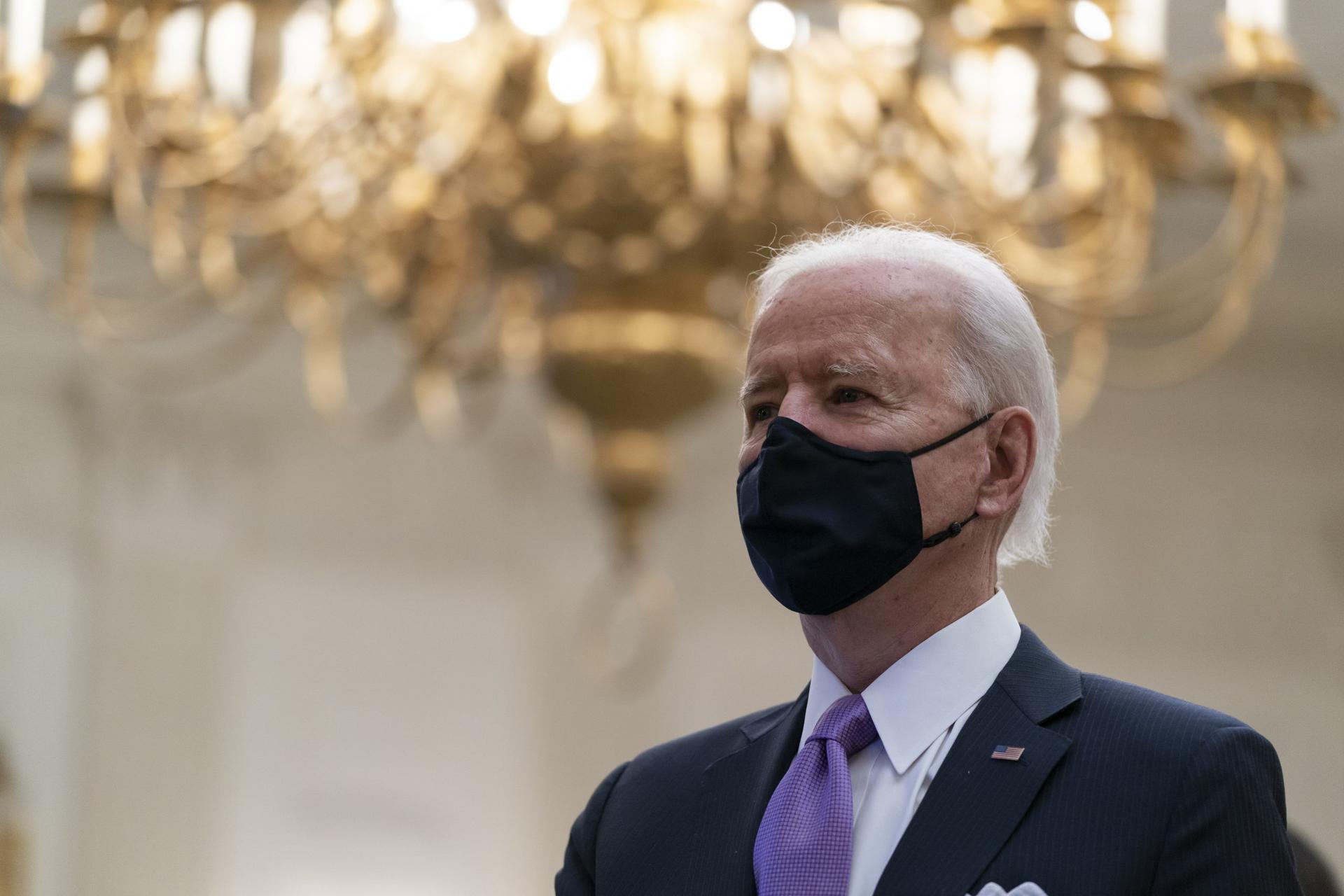NEW YORK — For Bishop Robert McElroy of San Diego, the way U.S. bishops should approach President Joe Biden and important issues can in part be answered through a question his mother used to ask: “What would Jesus do?”
In the case of abortion, McElroy said Jesus would say to fight for the unborn child. Immigration, Jesus would say to fight for the children on the border and refugees. And with race, Jesus would say you need to fight for those who are victims.
A question about denying Biden communion because of his abortion stance – posed to him Monday during a Georgetown University Initiative on Catholic Social Thought and Public Life discussion on the relationship between the second Catholic president, the U.S. bishops and Pope Francis – sparked the comments.
With regards to denying Biden communion, McElroy said it would be “very destructive.” He acknowledged there is a pocket of bishops who are in favor of such an action. But noted the only two people with a pastoral responsibility towards Biden are Cardinal Wilton Gregory of Washington, and Bishop Francis Malooly of Wilmington.
Both have previously stated they will not do so.
“I do not see how depriving the President or other political leaders of Eucharist based on their public policy stance can be interpreted in our society as anything other than the weaponization of Eucharist and an effort not to convince people by argument and by dialogue and by reason, but, rather, to pummel them into submission on the issue,” McElroy said.
But beyond the issues, the prelate noted yesterday that the American episcopacy first and foremost needs to “signal unity” to help heal and unify the country.
The topic of unity in the Catholic Church has been a topic of conversation since inauguration day, when different tones were taken towards the president from prominent church leaders.
Archbishop José Gomez of Los Angeles, president of the U.S. Bishop’s Conference, issued a statement that his prayers are with the new president and his family, but making it clear Biden’s stances in the areas of abortion, contraception, marriage and gender “would advance moral evils.”
Soon after, Cardinal Blase Cupich of Chicago, in a public rebuke of the statement, called it “ill-considered.”
“We need to be a part of helping to forge that unity and healing. That doesn’t mean we’re not vigorously going to advocate on behalf of legal protections for the unborn or on behalf of the planet or against racism,” McElroy said. “But it means that our most important mission I think at this present moment in the public order is to help heal our nation.”
“It’s what Pope Francis says about dialogue and encounter. It means understanding the other person on the other side has some important things to say and beginning with that. And then being honest about the issues we need to advocate for but within that context.”
When it comes to the relationship between Biden and Pope Francis, Anne Thompson – who covers the Catholic Church and is the chief environmental affairs correspondent for NBC News – said the pope historically approaches leaders where they share common ground.
“Throughout his pontificate. Pope Francis does not want to get involved in the local issues of any country that’s not what he’s about,” Thompson said.
John Carr, the cofounder and codirector of the Georgetown Initiative, advised the bishops to “make distinctions.”
“We ought to be clear, but frankly, we should try to persuade others to join us, not just condemn. We need to spend a lot more time talking about the humanity of the unborn child than whether Joe Biden can go to Communion,” he said.
“The partisan politics is not the responsibility of the conference. What is its responsibility is policy, and we ought to find ways to work together effectively where we can to advance the common good, to negotiate our differences where we can to advance the common good, and to resist policies which will undermine the common good,” Carr added.
Helen Alvaré, professor at the Scalia Law School at George Mason University, noted that even in areas where unity is unlikely, it’s important for the Catholic church to be “very explicatory” on where it stands.
“The Biden administration is going to say and is already saying that their positions on abortion, gender, marriage, etc. are all about freedom and love and compassion,” she said. “As a Church of reason and faith we’re going to owe it to our people to be even more clear than usual. To say our teachings are exactly what is required to promote actual freedom, actual love, actual passion.”
Follow John Lavenburg on Twitter: @johnlavenburg













